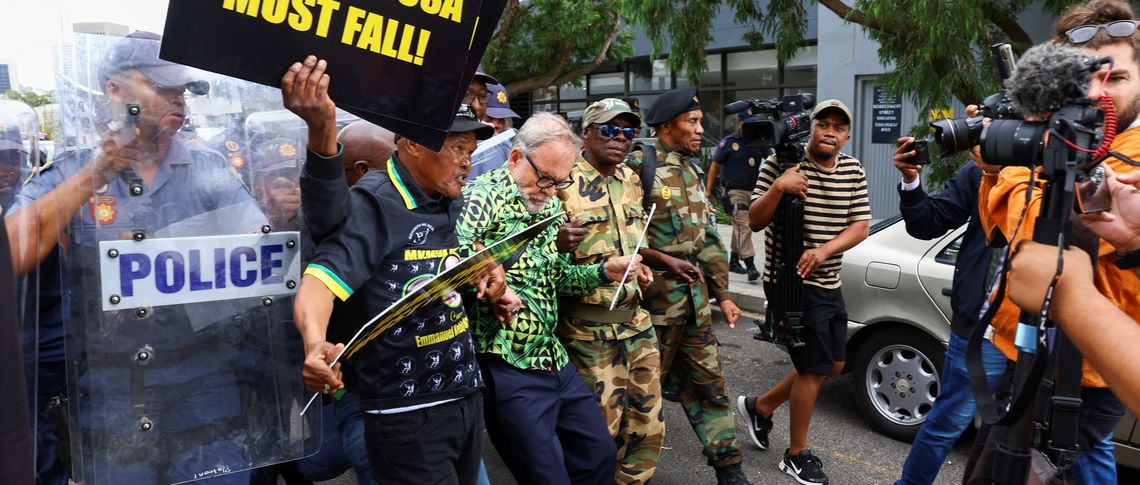When Cyril Ramaphosa was elected as President of South Africa in 2018 on the back of a strong campaign, popularly referred to as the ‘new dawn’, hopes were high. Over the past decade, corruption in both, the public and private sectors, has had negative effects on economic development and state capacity in South Africa. The ‘new dawn’ promise highlighted Ramaphosa's ambitious commitment towards restructuring the country’s political economy, improving public sector governance, ending corruption and decreasing socio-economic inequality across the country. Yet, four years later, these objectives have still not been achieved.
Recently, a political conflict about the ‘Report of the Section 89 Independent Panelon whether sufficient evidence exists to show that the President committed a serious violation of the Constitution’ has lowered the public’s faith in the ‘new dawn’ campaign. The panel found that there are sufficient grounds to take further legal action against the president in the ‘Phala Phala Farm’ matter, which is based on allegations of serious violation of the Constitution and the law and serious misconduct. These findings have cast doubt over the president’s genuine commitment to ending corruption and promoting more accountable governance. Additionally, some believe that state institutions are not acting in accordance with the impartiality and fairness principles stated in the Constitution.
South Africa still experiences long-standing socio-economic and political challenges that undermine democracy in several ways and different opinions are being voiced on why the ‘new dawn’ has not lived up to its promises. The upcoming 55th African National Congress (ANC) elective conference (16-20 December) thus has the potential to end in a dispute over the party leadership and, by extension, the national leadership.
Three important decisions
The ANC party congress is a significant political event that shapes socio-economic policy in South Africa. Delegates of the ruling party from different provinces will discuss policy mandates that seek to realise the socio-economic objectives of the ‘new dawn’ promise. Amongst these, three important decisions need to be considered in greater detail.
Firstly, the contentious issue about South Africa’s transition towards a low-carbon economy. At COP 27 in November, government officials signed the Just Energy Transition Investment Plan (JET IP), which is centred on decarbonisation, social justice and economic growth and inclusivity. But disagreement amongst different political actors about the actual implementation and policy impacts of JET IP persists. Some key concerns voiced by trade unions and civil society groups include the financing conditions, employment losses, skills deficiencies, and the need for decreasing the power of large corporates in the energy value chain. The conference is expected to develop policy resolutions that could potentially address these concerns.
The government’s macroeconomic strategy has focused on decreasing state debt, controlling inflation and cutting down wasteful expenditure.
A second significant socio-economic policy topic that needs to be discussed is expanding South Africa’s social security system. The country has a social transfer system that covers close to 18 million beneficiaries through monthly grant payments. In 2021, half of the households in South Africa depended on these social grants, making them one of the most stable income sources in low-income communities. However, these social transfers are still inadequate as they exclude many people that fall outside the targeted beneficiary categories. High unemployment, food insecurity and decreasing household incomes have further limited the grants’ socio-economic impact on society. Hence, trade unions and civil society groups are calling on the government to revise the system. They campaign for a Universal Basic Income Grant (UBIG) that would cover the existing gaps in South Africa’s social security system by expanding social security access to residents while supporting existing livelihood strategies.
Critics from organised business, different sections of the government and neo-liberal organisations argue that introducing a UBIG is too costly and discourages people from seeking work. Several civil society research reports have challenged these claims, highlighting the positive socio-economic impacts of social transfers on the economy and on poorer households. The ANC policy conference resolutions from June 2022 confirmed the party’s support for a Basic Income Grant (BIG). But the model of the proposed BIG is still a hotly debated topic and several contradictory policy proposals are emerging within the government. Delegates at the upcoming conference will be faced with the difficult task of developing a clear BIG – or UBIG – policy framework. This is essential for achieving the ‘new dawn’ economic promise aimed at decreasing poverty, inequality and unemployment in South Africa.
South Africans want responsive, transparent and accountable governance. They equally want an economy that improves human development in all communities and ends historic exploitation.
The third important issue that the conference needs to discuss is the state of public services and employment. The government’s macroeconomic strategy has focused on decreasing state debt, controlling inflation and cutting down wasteful expenditure. One of the controversial policy outcomes of this strategy is the attempt to lower the public wage bill while equally spending less on certain social services – a policy that has created political tensions between government officials, communities and trade unions. In opposition to the strategy as a whole, a joint trade union and civil society opposition has led to national strikes in August and November and negotiations on this issue have currently reached a deadlock. The core problem is the contestation over an appropriate macroeconomic framework, which supports socio-economic redistribution, protects decent public sector employment and encourages economic growth.
The ANC conference delegation carries a great responsibility and must carve out a well-balanced fiscal policy strategy for South Africa. A ‘new dawn’ in the areas of economic and social policy requires a suitable macroeconomic framework that balances socio-economic redistribution while maintaining decent public sector employment and driving long-term economic growth. The conference’s policy resolutions need to be clear and assertive in order to effectively address poverty and persistent socio-economic exclusion. Last year’s July riots highlight the growing impatience in society, especially in the areas of corruption and socio-economic inequality.
Now 28 years after the country’s democratic transition, South Africans want responsive, transparent and accountable governance. They equally want an economy that improves human development in all communities and ends historic exploitation. Policies adopted at the conference should take into account this watershed moment in the country’s history while at the same time charting a new path for the country’s development that is in line with the demands of the South African people.






